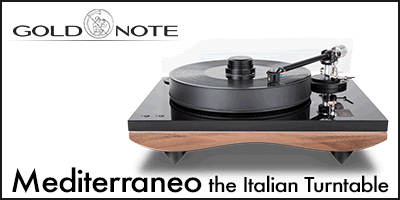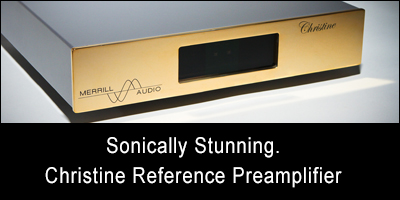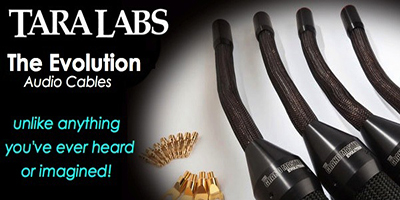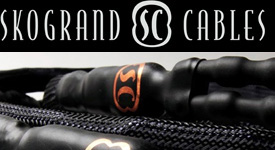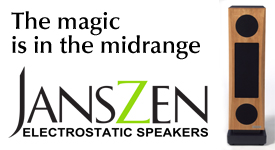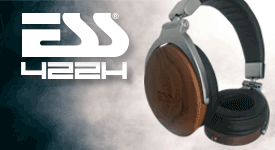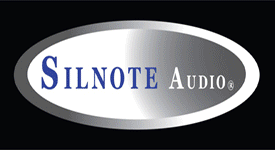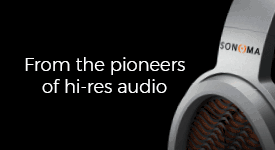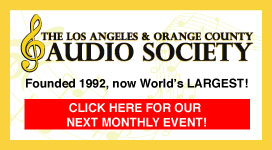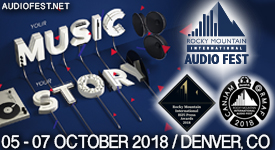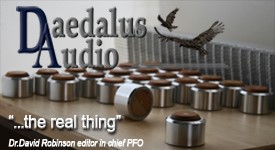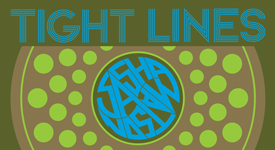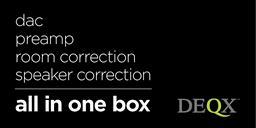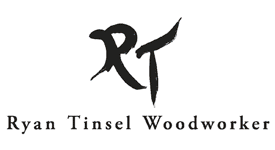Welcome to the Pacific Audio Fest!
Music is a wondrous art form, an essential weave in the colorful fabrics of our cultures that helps give meaning to our lives. Music is an artistic gift from musicians to us all. A gift that allows us to experience beauty, love, loss, joy, tragedy, and many other emotions, as expressed in music. Music stirs us to dance in joyful abandon, aids us in expressing meaning through our rituals, and evokes fond memories from times past. Music makes our world a more meaningful and beautiful place to live.
Listening to music brings many benefits. Music can improve our mood, reduce our stress, soothe our worries, ease our pain, and provide us a comforting distraction in a discomfiting world.
Prior to the appearance of the recording arts on Planet Earth, if one wanted to enjoy music it meant attending a live musical performance, or singing and playing one’s own music. With the advent of the recording arts, we are fortunate that we now have a vast recorded music canon that spans the acoustic (1877–1925), electric (1925–1945), magnetic (1945–1975), and digital (1975–present) eras of recording, available for us to listen to and enjoy. Recordings of musical performances are to music what Ansel Adams' photographs are to the landscapes of the American West: unique artistic documents of a musical performance captured at a moment in time by those in the recording arts. Recordings are “musical photographs” that allow the many to experience and enjoy the musical performances, instead of only the few that are present at live performances.
Our love for music is what got many of us interested in audio. Listening to our favorite recordings of music is a treasured activity that bathes our entire being in the beauty and wonder that is music. Home music listening has paralleled the evolution of the recording and cinema arts. During the acoustic era of recording we listened to our gramophones and 78 records, and with the advent of radio broadcasting in the electric era of recording, we began listening to music as part of radio broadcasts over our home radios.
The introduction of condenser microphones, vacuum tube amplifiers, and electromagnetic cutting heads during the electric recording era brought improved sound quality to us, and when sound recording was synchronized with motion pictures in the late 1920s, film industry research & development delivered major improvements to the audio reproduction chain, with amplification quality improving rapidly from 1920 to 1930, and loudspeaker quality improving rapidly into the late 1930s.
The sound quality of the recording arts improved significantly going from the electric to the magnetic era in 1945, and the recording arts evolved rapidly during the magnetic era, first with monaural recordings, then stereo recordings, and then multichannel recordings.
Upon entering the digital era of recording, software and audio equipment has continued to diversify at a rapid pace, and at the Pacific Audio Fest you’ll discover that we now have a great variety audio equipment designed to please every listener and budget.
Getting the Most Out of Your Pacific Audio Fest Experience
There's a variety of audio and music experiences available for you to enjoy at the Pacific Audio Fest, and I recommend you try sampling them all. If you are looking to purchase a new audio system, or audio components, you will want to focus some of your attention on those auditions. However, the Pacific Audio Fest also represents a great opportunity to explore outside of our usual preferences or constraints.
For instance, if you typically listen with headphones, try sampling audition rooms with full-range and monitor loudspeakers, and explore what they have to offer. If you usually listen to LPs, try listening in rooms with music streaming sources, and hear how far they’ve come. If you typically listen with vacuum tube electronics, try listening to rooms with solid-state electronics. Variety can be the spice of life, and you’ll find a great variety of audio components here that can spice up your music listening life.
The Pacific Audio Fest also provides a rare opportunity to listen to a variety of audio systems that we normally don’t have access to. Only a few of us can afford a two million dollar system at home, but at the Pacific Audio Fest you can listen to one, and hear for yourself how it compares to audio systems at other price points. As you listen to the variety of audio systems at the Pacific Audio Fest, consider how those systems transport you emotionally through the music, and then use those newfound insights to make your audio system a better match to your personal tastes.
The Pacific Audio Fest provides us with an opportunity to think and listen outside of our usual “box”, which can be illuminating. Have fun, explore, talk to the experts and manufacturers in audio. Take time to listen to new music, explore new ideas, and make some new friends.
Be sure to stop in and visit the Luthier's Showcase, where you can experience the musical instrument artistry of great North American Luthiers, as they exhibit their hand-built guitars for you to admire, hear, and play.
Later in the Pacific Audio Fest evenings, be sure to attend the live music events on Friday and Saturday evenings, and enjoy the live music performances provided.
Also, during the day there will be a number of seminars to attend on a variety of audio topics, so be sure to stop in for a visit.
Be An Audio Reviewer
Take the opportunity at the Pacific Audio Fest to be an ‘audio reviewer’ for a few days.
The audio systems are already fully run-in, and the system setups have been optimized for their best performance, so all you have to do is listen to the music and ask yourself what you like - or don’t like - about what you hear and feel.
Ask yourself, “What kind of listener am I?” Some listen only to recordings of the finest quality, while some listen only to recordings of the finest musical performances, and some are musical explorers who enjoy listening to all the varied music from our immense recorded music canon.
Audio engineers build audio equipment with various “voicings”, to accommodate different kinds of listeners, so those different listeners can get the most out of the music they enjoy listening to.
Audio equipment voiced for those who listen to only recordings of the finest quality, are typically optimized to play back the best recordings from the magnetic and digital eras of recording, in the finest sound quality possible.
Audio equipment voiced for those who wish to explore music from all of our recorded music canon - the acoustic, electric, magnetic, and digital eras of recording - allows listeners to enjoyably listen to a wide range of recordings of varied recording quality, while minimizing sound quality issues of lower fidelity recordings, and still presenting high-fidelity recordings in all their glory.
Next ask yourself, “What kind of audio system am I listening to?” Identifying the type of audio system you are listening to will help you understand how to review it, and what music to use for your ‘review’. To learn more about the performance of the audio system you are listening to, I suggest taking examples of your favorite music that have poor, average, and excellent recording quality.
As you listen, jot down notes mentally, or on paper, about what you hear and feel.
What you notice about an audio system’s performance will tell you a lot about the audio system you are listening to, what your personal tastes are as a listener, and what will make for good additions to your own audio system.
Audiophiles like to listen to high-fidelity stereo recordings from the magnetic and digital eras of recording, and they enjoy exploring the visuospatial aspects of recordings from those eras.
Be an audiophile for a day and ask yourself how well the audio system you are listening to portrays the non-musical visuospatial characteristics of recordings.
Do you like what you hear in terms of the soundstage (the three dimensions of the recorded space in width, height and depth), the imaging (the ability to localize instruments & musicians on the soundstage), transparency (the ability to ‘see’ aurally into the recording), and the resolution (the amount of detail in the audio signal that is audibly presented)?
Next, ask yourself how musically natural an audio systems sounds. Does it sound musically natural like the live music you’ve listened to here at the Pacific Audio Fest?
Do you hear a sense of realistic instrumental timbre (the unique ‘voices’ of instruments), the resolution of tone color (the ability to distinctly hear the chordal variations resulting from adding additional pitches to three tone triads), melody (the tune you ‘whistle while you work’), harmony (treble & bass accompaniments to the melody), rhythm (the steady beat that determines the tempo), tempo (speed), dynamics (variations in loudness), and loudness (the ability to play naturally at live-like levels appropriate to a piece of music)?
If an audio system doesn’t sound musically natural to you, ask yourself why not. Is it because it sounds overly electronic, synthetic, or even amusical? Or is there just something else about the way it plays music that is a distraction for you?
Ask yourself, “How well does this audio system communicate the emotional and artistic content of the music?” How does the way this audio system plays music make you feel? Do you get lost in the feelings of the music, or are you distracted by the sound quality?
Many of the greatest musical performances recorded in our historic music canon reside in the monaural recordings from the acoustic, electric, and early magnetic era of recordings. In those monaural recordings, visuospatial cues like soundstage and imaging are greatly reduced, if they exist at all, so you will be listening primarily for how well the audio system conveys the quality of the musical performance.
Ask yourself if the tonal balance of the audio system allows you to enjoy the musical performances without distraction, or does it distract you from the listening experience by emphasizing sound quality issues of lower-fidelity recordings?
Finally, ask yourself if the audio system you are ‘reviewing’ gives you a sense of the ‘authenticity' for each of the eras or the recordings arts, while still allowing you to fully enjoy the musical performances from each of those eras.
Listening for the different aspects of audio system performance mentioned above will tell you a lot about what your personal listening preferences are, and what you really value in home audio system performance. Let your listening notes be your guide to what your listening preferences are, as well as what sort of audio system or components will make you the happiest listener over the longer term.
Thank you for joining us at the Pacific Audio Fest, we are all glad you are here!
That concludes my reporting for the Pacific Audio Fest 2022. I hope to see you at the next Pacific Audio Fest in 2023!
As always, thanks for stopping by, and may the tone be with you!

